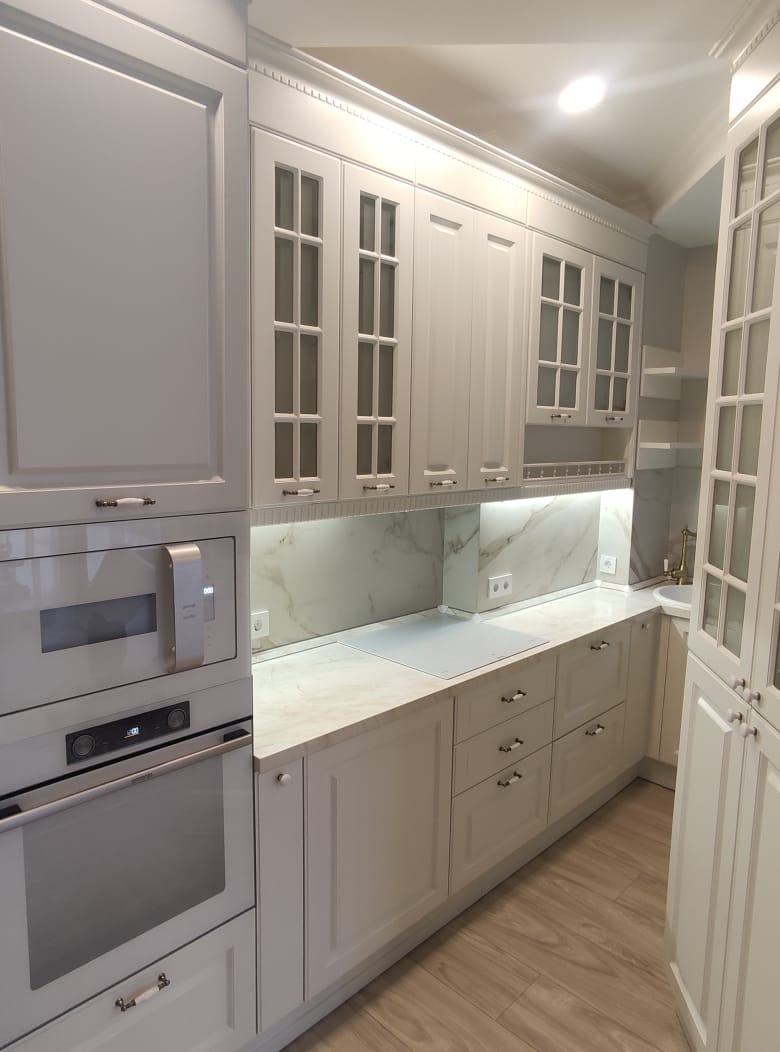
The Evolution of Modern Culinary Spaces
The kitchen has transformed from a purely functional area into a multifunctional space that serves as the heart of the home. Modern culinary spaces have evolved to accommodate not only cooking but also dining, entertaining, and living, reflecting our changing lifestyles and the importance of food in our social fabric.
Design Aesthetics and Innovation
Contemporary kitchen design emphasizes minimalism, clean lines, and open spaces. Innovative materials and sophisticated technology integrate seamlessly to create not only a visually appealing space but also one that is ergonomically efficient and environmentally friendly. From smart appliances that can be controlled remotely to sustainably sourced materials, design aesthetics and innovation walk hand in hand in redefined modern culinary spaces.
Functional Layouts and Customization
One of the hallmarks of a modern culinary space is its customizable nature, allowing individuals to tailor their kitchen to fit their specific needs and lifestyles. Functional layouts focus on the 'work triangle,' optimizing the flow between the refrigerator, stove, and sink. The rise of the open-plan kitchen also facilitates social interaction, enabling the cook to engage with guests or family members while preparing meals.
Multi-Purpose Kitchen Islands
The kitchen island has become a staple in modern kitchen design, providing a versatile platform for cooking, dining, working, and socializing. With built-in appliances, storage solutions, and seating areas, islands are often designed as the centerpiece of the kitchen, exemplifying the multi-purpose nature of today's culinary spaces.
Technology Integration and Smart Kitchens
Technology integration is at the forefront of modern kitchen design, with smart kitchens featuring devices and appliances that offer convenience, efficiency, and connectivity. From refrigerators that can order groceries to ovens that can be preheated via a smartphone app, the infusion of technology into culinary spaces is redefining the cooking experience.
Sustainability and Health Consciousness
With an increased focus on sustainability and health, modern kitchens are designed to promote eco-friendly and health-conscious lifestyles. This includes the incorporation of indoor herb gardens, composting systems, energy-efficient appliances, and materials that reduce the kitchen's carbon footprint. By prioritizing health and sustainability, these kitchens are not just trendy but conscientious.
The Social Kitchen: Blurring the Lines Between Spaces
The concept of the social kitchen represents the blurring lines between the kitchen and other living areas. Kitchens are increasingly designed to flow into adjacent spaces such as living rooms or outdoor patios, reflecting the desire for a more inclusive and interactive environment that encourages communal experiences around food and cooking.
Conclusion: The Kitchen of Tomorrow, Today
Modern culinary spaces are redefined by their ability to adapt to our evolving lifestyle needs, integrating design, technology, and functionality. As the line between cooking and living spaces continues to blur, the modern kitchen stands as a testament to innovation, inclusivity, and the central role of food and cooking in our lives. The kitchen of tomorrow is not a distant dream but a tangible reality that is being shaped today.